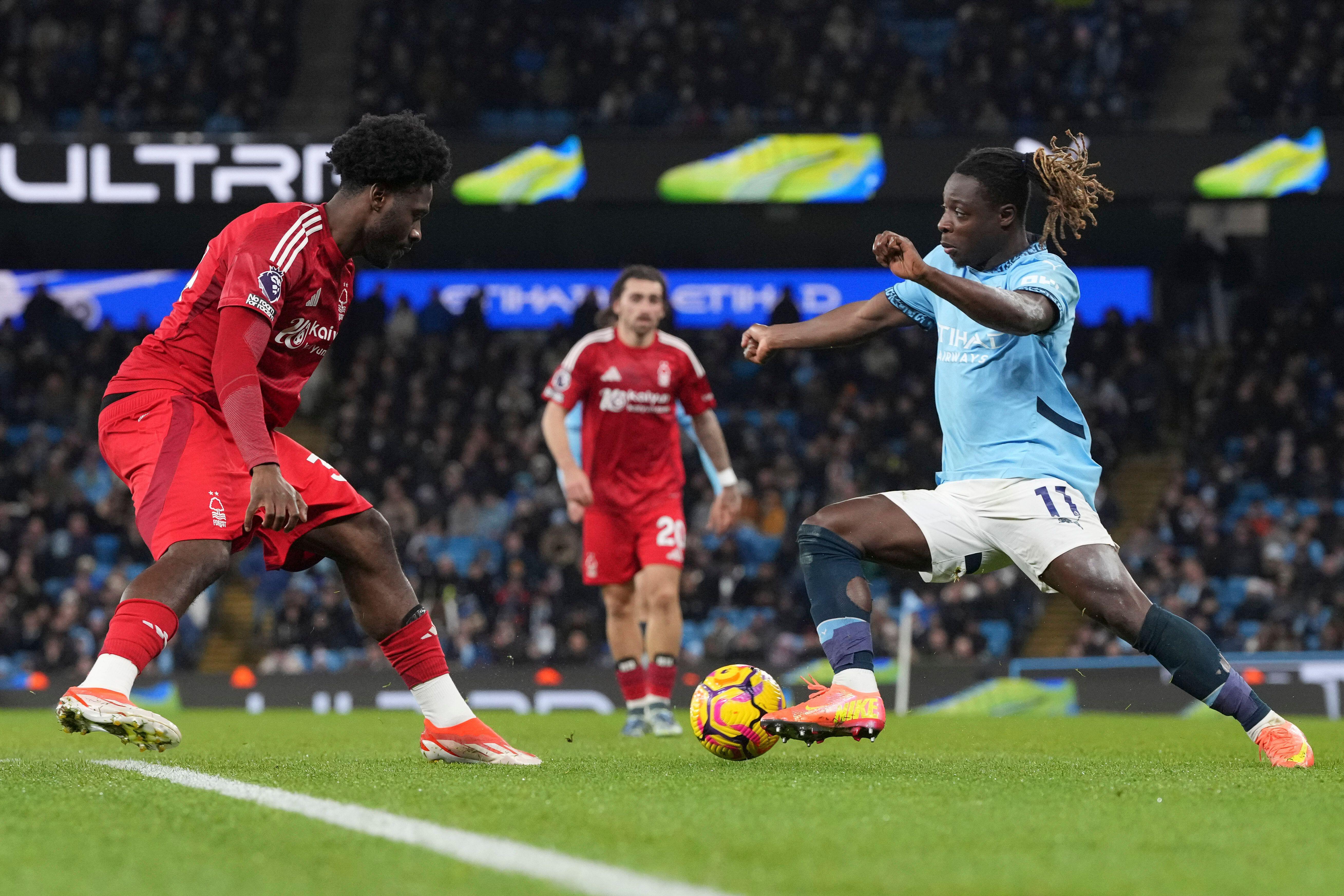Eric Cantona's most iconic moments, 25 years on from the kung-fu kick
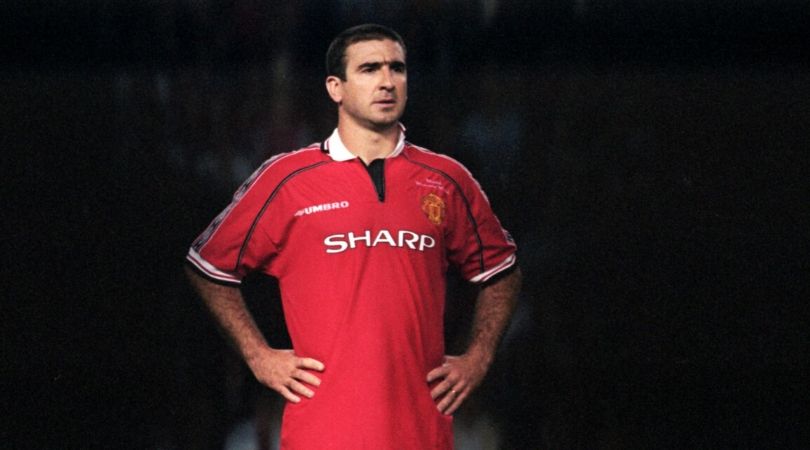
King Eric
Eric Cantona is inarguably one of the most colourful characters to have graced the Premier League. The former Leeds and Manchester United striker made his presence felt on the pitch thanks to his array of spectacular goals and an impressive collection of silverware.
But perhaps the Frenchman’s most famous moment in a Red Devils shirt came at Selhurst Park in 1995, when he launched a kung-fu kick at a Crystal Palace fan.
Twenty-five years on from that extraordinary episode, we look at Cantona’s defining moments – as explained by the man himself in an interview with FourFourTwo back in 2008.
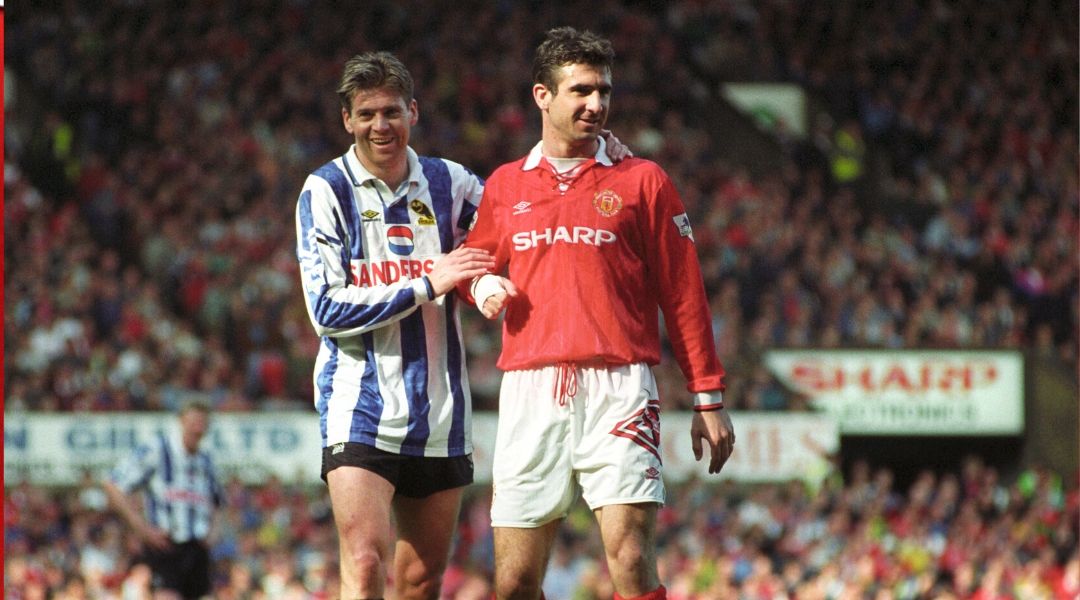
Trevor Francis demands a trial
“He didn’t invite me for a trial. I was there for a week and I thought I was there to sign. My lawyer was there and he spoke to try and find a way with the contract. I trained and played in a friendly game. We won 4-3. I scored three goals.
“After one week, he asked me to spend one more week on trial. There weren’t a lot of foreigners in England then, maybe some from the north of Europe but not many from the south. Maybe they were suspicious, but I was a France international and Sheffield Wednesday wanted more time to decide about me. That was not a very good way to go about things.”
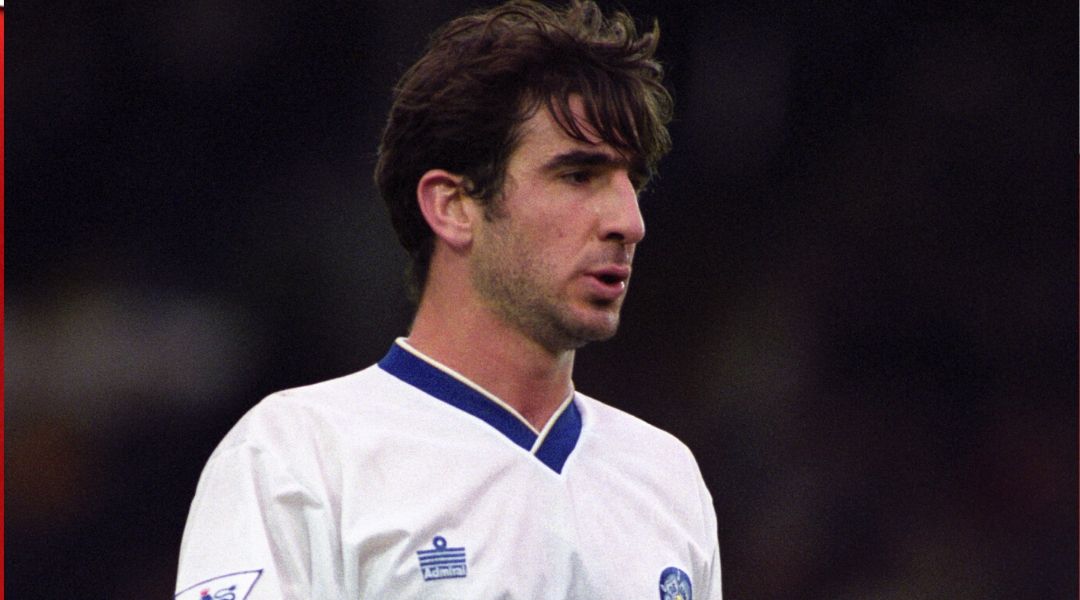
The ugly Leeds exit
“Maybe the atmosphere at a club wasn’t how I dreamed it would be. I needed time or I gave up or I tried to find words to explain what I wanted. It’s like with a woman. Sometimes you can’t find love. Sometimes you can, but it’s still not right.
“It’s good to be in love, but you want more, you want to give, you want to receive. Sometimes that doesn’t happen. I’m not sure that I would like to be with a woman who is like some of the chairmen I met. They didn’t deserve to be loved.”
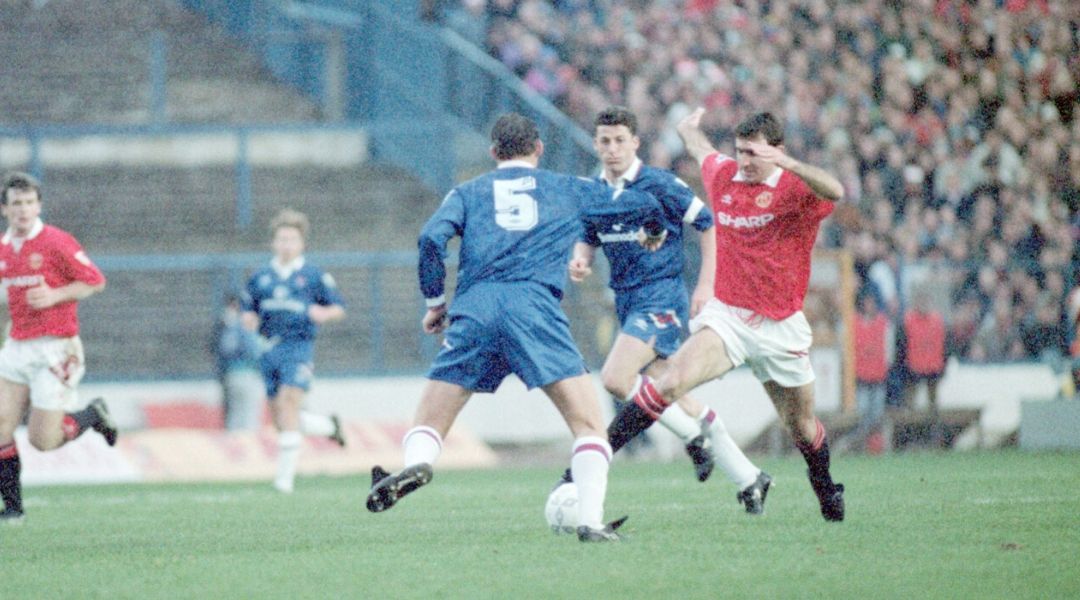
The first United goal
Cantona was brought in by Alex Ferguson to add some much-needed firepower to his attack.
The Frenchman’s first came in a 1-1 draw with Chelsea in December 1992 at Stamford Bridge – and another 81 followed.
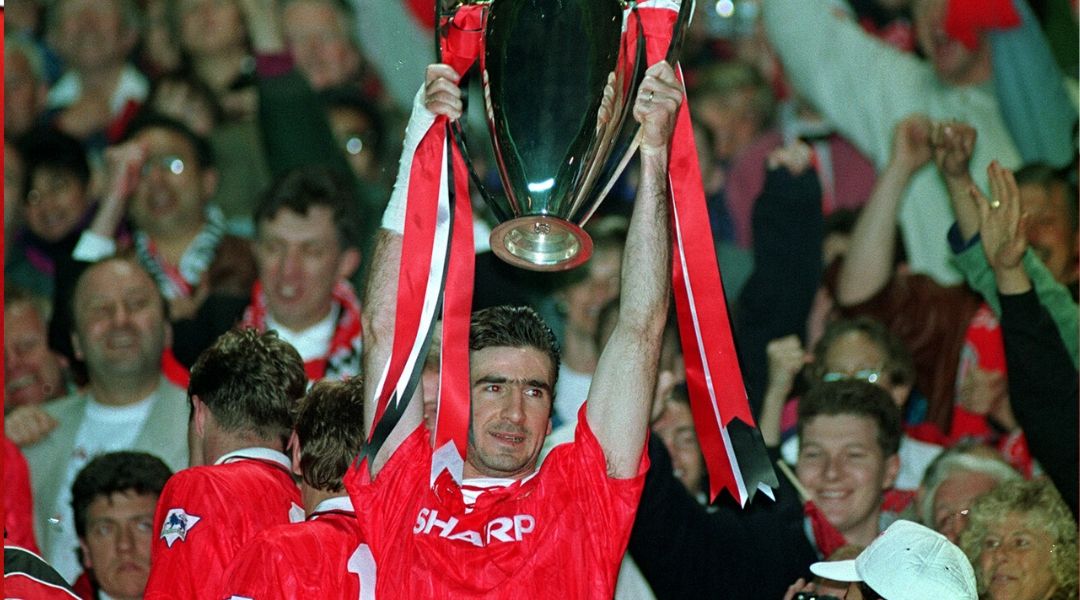
The first Premier League crown
Cantona’s arrival at Old Trafford in the winter of 1992 from rivals Leeds was fundamental to Manchester United clinching the Premier League crown.
The striker scored nine goals for the Red Devils that season, ending a 26-year wait for a league title.
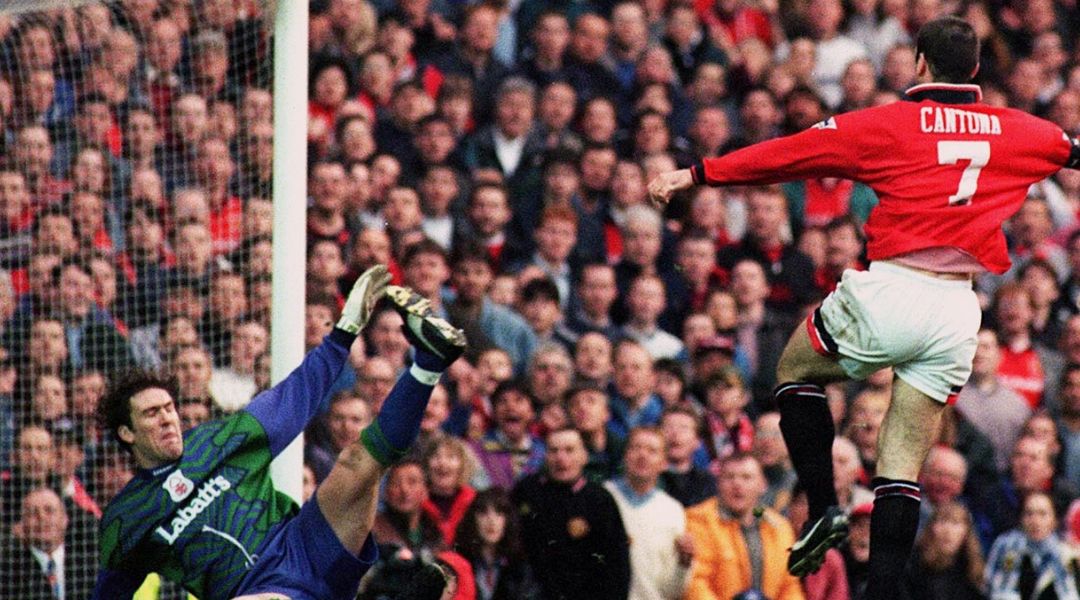
Roy Keane describing Cantona as the best at one-on-ones
“I worked a lot and I was relaxed. You have to find the timing when the goalkeeper comes towards you. If he’s too close, you don’t have the angle to score a goal. If he’s too far, then you are too far and you won’t be strong enough to be precise. When the goalkeeper is three metres away is good. That’s when you score the goal.
“When I was young I used to miss. I tried to understand why I scored in training but not in the game. It was about timing. It’s the same for the dribble. If a defender is too close you can’t dribble; if he is too far away then he can anticipate.”
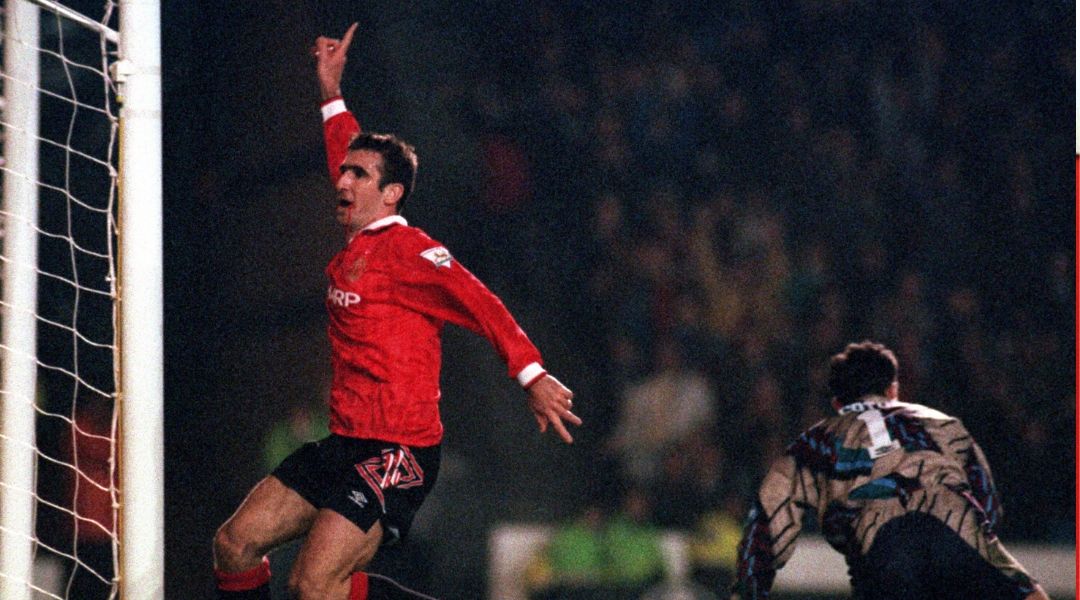
The Derby rescue
Disaster was on the cards in November 1993 as Manchester United trailed rivals City 2-0 at Maine Road.
But Cantona took matters into his own hands by scoring twice to complete the comeback before Roy Keane netted a late winner.
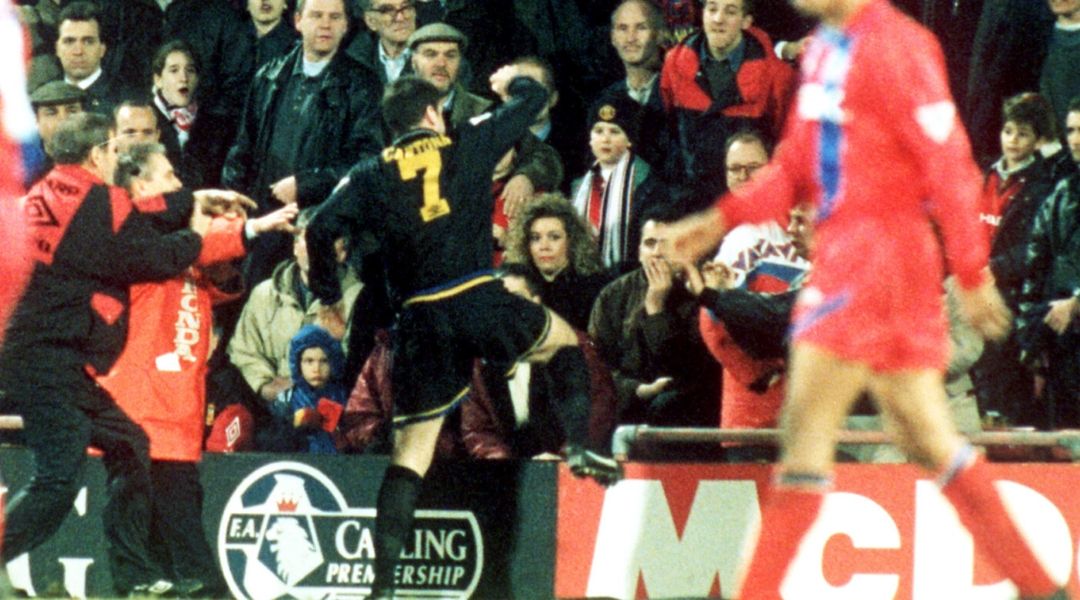
The kung-fu kick
“I didn’t hit him strong enough. I should have hit him harder...
“I didn’t think that I had a responsibility not to do it because of who I was. No, I was just a footballer and a man. I don’t care about being some sort of superior person. I just wanted to do whatever I wanted to do.
“If I want to kick a fan, I do it. I’m not a role model. I’m not a superior teacher, telling you how to behave. I think the more you see, the more you realise that life is a circus.”
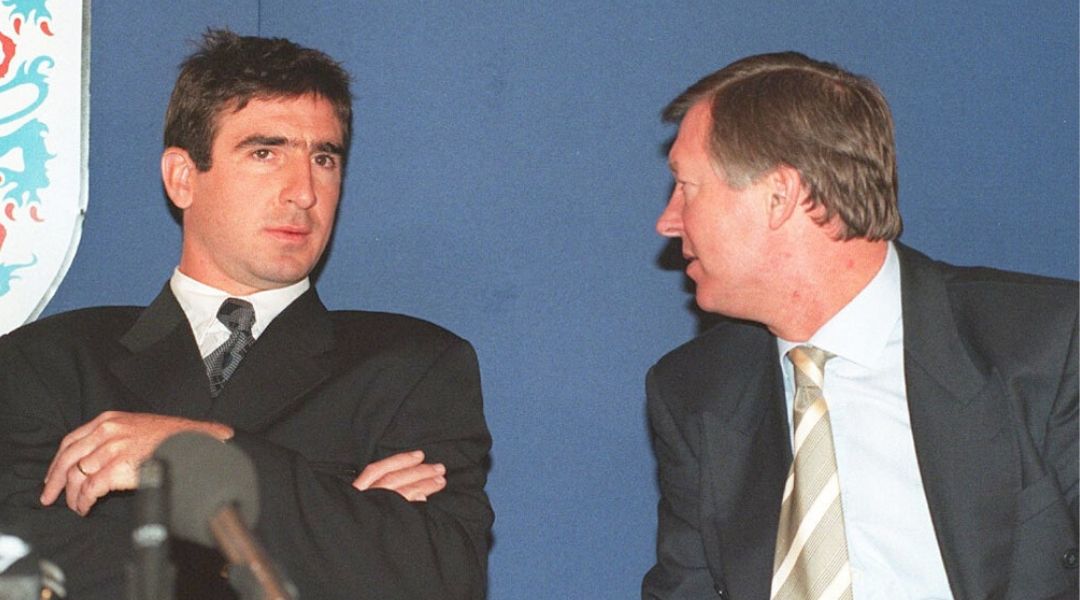
*That* press conference
Cantona’s interviews were often as entertaining and unpredictable as his performances, but the press conference he held after being sentenced for assault for his kung-fu kick is undoubtedly the most memorable of all.
He simply said: “When the seagulls follow the trawler, it's because they think sardines will be thrown into the sea. Thank you very much."
Then he got up and left.
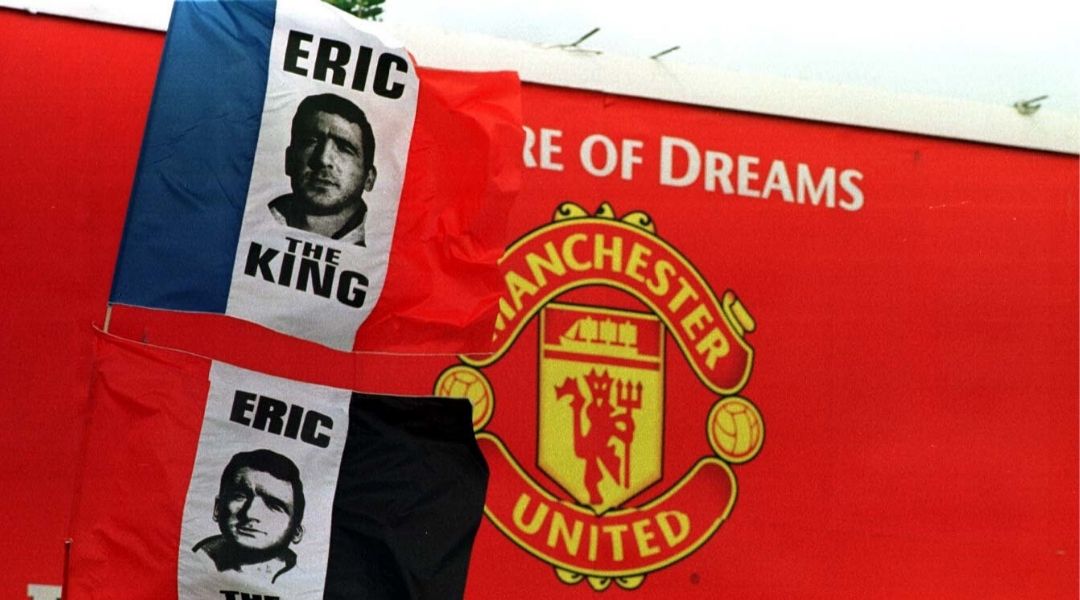
The billboard of support outside Old Trafford
On his return from the eight month kung-fu ban, a banner was raised outside Old Trafford saying: “We’ll never forget that night at Selhurst… when you buried that 30-yard screamer”
Cantona recalled: “I liked the words on the poster. And I liked it when I was in court and the fans supported me. They travelled from Manchester, in the middle of the week, to Croydon. I could feel that support and it helped me a lot. The club, also, supported me. So I stayed.”
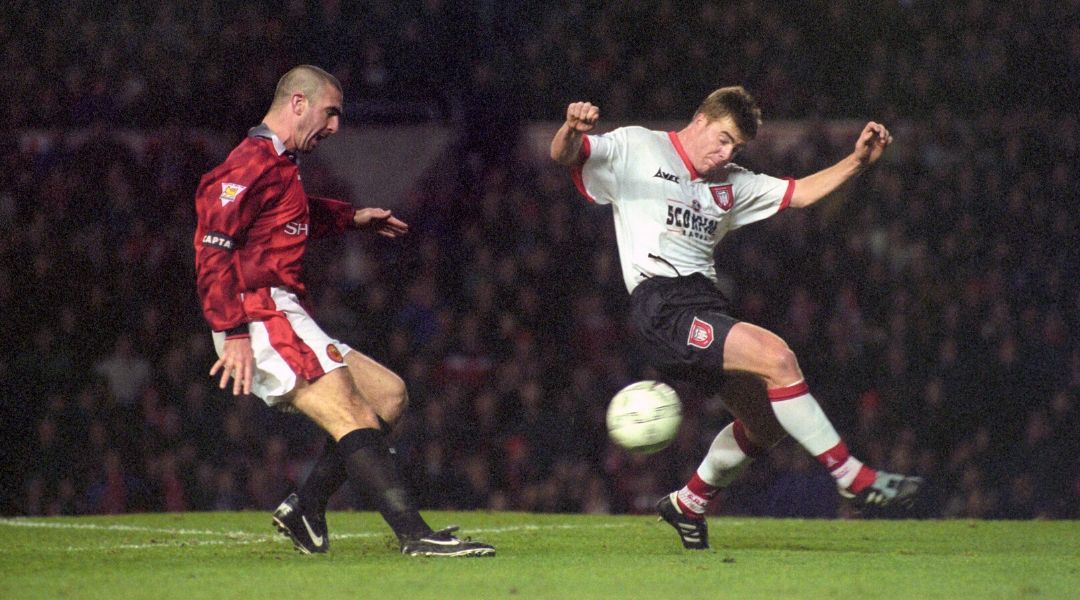
The chip against Sunderland
Probably his most famous goal, Cantona’s beautiful lob against Sunderland summed him up as a player.
The casual nature of the perfectly weighted lob, the even more casual celebration; it was classic Cantona.

The birth of the upturned collar
“It wasn’t an idea. I put my shirt on. It was a cold day. The collar stayed up so I kept it like that.
“We won, so it became a habit to play with my collar up.”
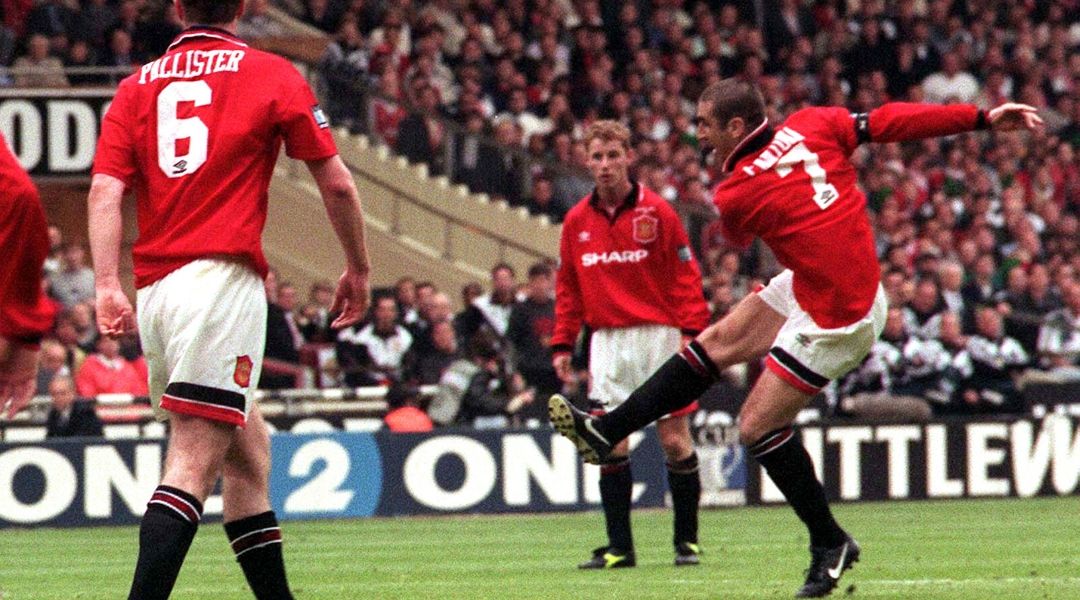
The double double
Manchester United became the first English team to win the Double twice in 1995/96 and, typically, Cantona was heavily involved.
With the FA Cup final against Liverpool tied at 0-0 and five minutes remaining, the striker rattled a volley past David James. Job done.
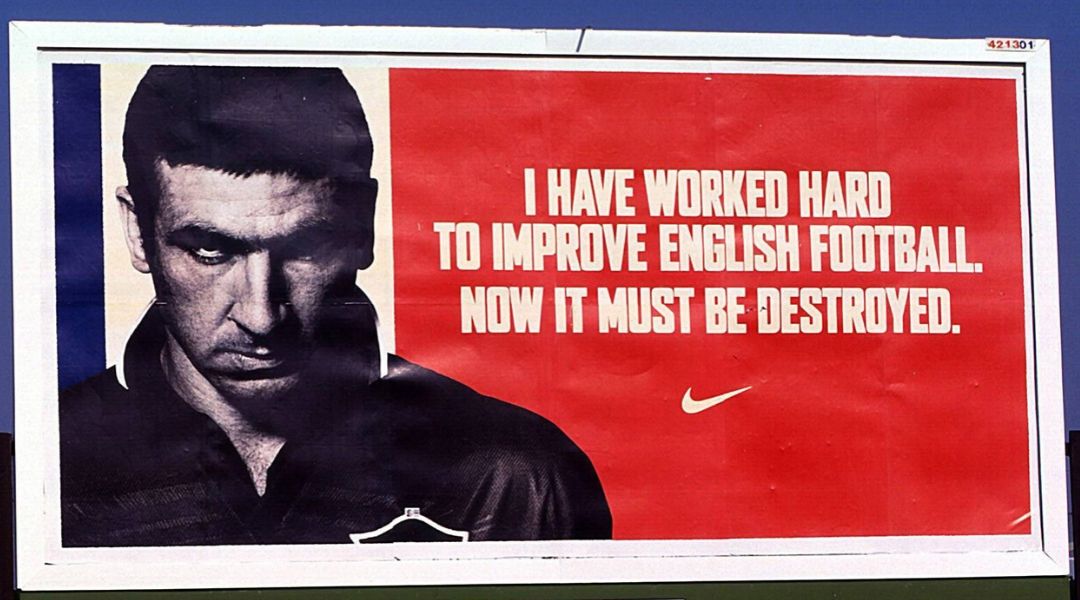
"Au Revoir"
Nike’s ‘Good v Evil’ advert, where a host of football stars including Paolo Maldini, Luis Figo and Ronaldo battled demons to rescue the beautiful game, is iconic.
But Cantona was the star of the show, providing the final flourish by saying ‘Au Revoir’, turning up his collar and blasting a fireball finish through the body of the winged beast in goal. Ah, the good old days…
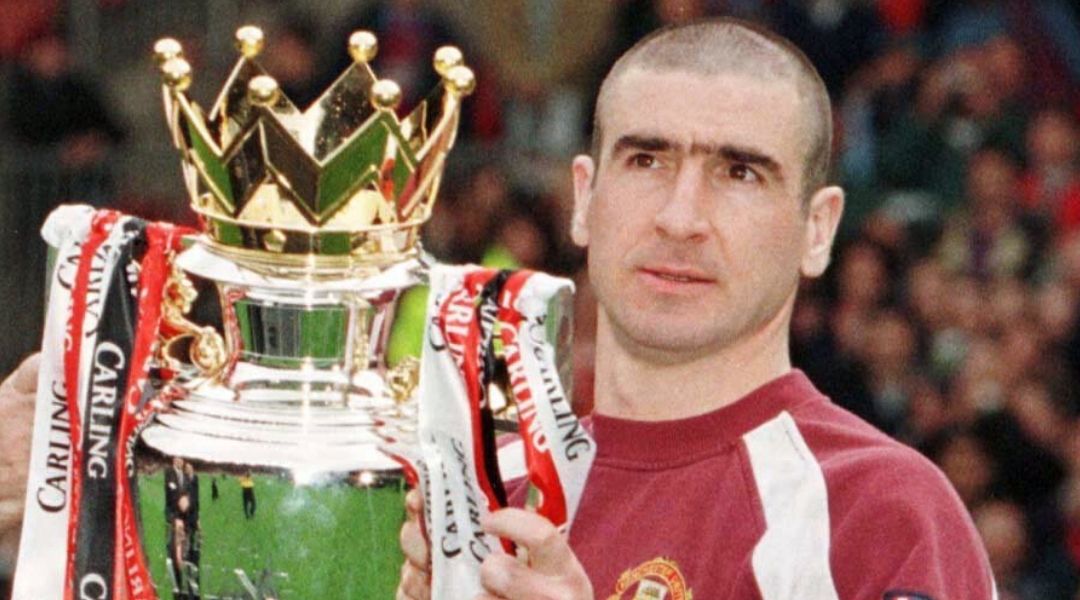
The early retirement
On retiring aged just 30 at the end of the 1996/97 season, Cantona said: “When I retired, I felt that I couldn’t improve any more. And I lost the passion at the same time.
“The passion comes with the motivation of improving. If you lose the passion, you lose the motivation.”

The move into acting
“For me, football and acting are very similar because they are passionate. You get a similar feeling when you are on the pitch and on a set. But the feeling is stronger on a pitch. When I lost that feeling, I stopped playing. I felt like I could not improve.
“In acting, I work hard to try and improve. I don’t like it when a football coach tells you which way to play. I like to improve myself as a person. Often there are players who have only football as a way of expressing themselves and never develop other interests. And when they no longer play football, they no longer do anything; they no longer exist, or rather they have the sensation of no longer existing.”
Alasdair Mackenzie is a freelance journalist based in Rome, and a FourFourTwo contributor since 2015. When not pulling on the FFT shirt, he can be found at Reuters, The Times and the i. An Italophile since growing up on a diet of Football Italia on Channel 4, he now counts himself among thousands of fans sharing a passion for Ross County and Lazio.
